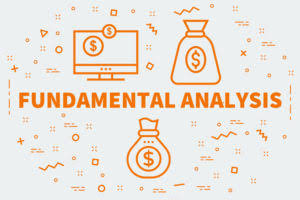
The CPA is an important credential to me, and I still get continuing education credits every year to keep up with our state requirements. This helps me keep current on issues happening in the industry and new accounting pronouncements. The bottom line is that accounting is a stable career, and you likely won’t have trouble finding a job that’s right for you. “From big tech to the FBI to the NBA, every single industry and every single company needs an accountant,” Barentzen says. It also offers flexibility (there are so many specialties!), opportunity (there’s demand!), and compensation (it pays!).
How Much Money Does an Accountant Make?
While managing and interpreting numerical financial data is a significant part of an accountant’s role, they do much more than that. An accountant also ensures regulatory compliance, assists in strategic financial planning, conducts audits, and offers expert advice on tax-related matters. Government accountants maintain and examine records of government agencies and audit private businesses or individuals for compliance with government regulations. An accountant without CPA certification cannot sign tax returns on behalf of a client, but they can prepare them.
- You’ll need to earn a bachelor’s degree for most accounting careers—generally in accounting, finance, economics, or your school’s equivalent.
- Professional certifications like CPA or CMA enhance their career prospects.
- In an effort to help ensure information is reliable and consistent, accounting assumptions are a set of guidelines that indicate how a company operates and business transactions are recorded.
- You can even start your own private practice or use your skills to start a non-accounting business as an entrepreneur.
- With so many options, you’ll likely be able to find a role with the right work environment for you.
- The odds are even higher for those who earn more than a million dollars (12.5%).
The top 5 AI terms corporate tax professionals need to know
- After all, the accountant knows how your finances look and will be objective when negotiating.
- CPAs must meet eligibility requirements, obtain state licensure, and follow strict principles established by the AICPA.
- They guide you through the maze of tax laws, helping you understand your obligations and opportunities.
- There is an option to deduct sales taxes or state income taxes off your federal income tax, if you itemize your deductions.
- Larger companies often have much more complex solutions to integrate with their specific reporting needs.
Audit managers supervise both internal and external auditing processes. An entry-level role, accounting clerks conduct data entry tasks and verify calculations. They usually need some education in accounting, but they also receive on-the-job training. Salaries tend to rise with experience, and they also depend on factors like location and industry of employment. For example, the BLS reports that accountants working in media distribution earned average salaries 35% higher than the overall average for the profession. Averages and medians tell only part of the story when it comes to the salaries accountants earn.
When You Think You Should Have More Money, But You Don’t

Over the past decade, client advisory services (CAS) have emerged as one of the fastest growing service areas in public accounting. The CAS 2.0 methodology and framework provides firms with a roadmap to help them develop and manage a successful and sustainable CAS practice. Most recently, CPA.com launched the CAS 2.0 Practice Development Coaching Program. The rise of technology and automation is changing the landscape of accounting.

When You’re Planning for the Future
While some basic tasks can be automated, this shift allows accountants to focus more on strategic roles, such as analysis, advisory services, and decision-making support. As a result, accountants will need to adapt, enhancing their technical skills and focusing more on value-added services. Beyond the day-to-day operations, accountants also assist in strategic financial planning. They analyze financial data to forecast trends, identify opportunities for increased profitability, and recommend measures to reduce costs.
Management accounting
- Your personal accountant will have to explain why you won’t be able to go on vacation the following month.
- Accountants can work for large or small accounting firms, in the private sector at companies across industries, at nonprofits, or within government agencies.
- If an employee has not received this document from their employers by January 31, they should check in to ensure nothing has been mixed up.
- The accountant has passed a four-part examination prepared by the AICPA.
- I understand that because most of service providers charge much money that it is not even worth it to benefit from their service.
- Because of this, a bachelor’s degree in accounting or finance can provide a solid foundation for preparing for a role as a financial advisor.
Graduate degrees can lead to higher salaries, while examinees with advanced education post higher pass rates on standardized accounting tests. Tax preparers what do personal accountants do assess financial documents for companies and individuals. They calculate tax obligations or refund amounts and file the necessary paperwork.
- However, having one makes it easier to track your money and ensure that you’re making sound financial decisions.
- Your bookkeeper will schedule regular appointments (e.g., weekly, monthly) to input data and perform the tasks you want to be done.
- The reports generated by various streams of accounting, such as cost accounting and managerial accounting, are invaluable in helping management make informed business decisions.
- Many employers and exam candidates see additional value in advanced or professional degrees in accounting.
- As a result, accountants will need to adapt, enhancing their technical skills and focusing more on value-added services.
- The results of all financial transactions that occur during an accounting period are summarized in the balance sheet, income statement, and cash flow statement.
What Does an Accountant Do: Role, Types, and Skills Required
Accountants help businesses maintain accurate and timely records of their finances. Accountants also provide other services, such as performing periodic audits or preparing ad-hoc management reports. Public accountants work for individuals, businesses, or the government and may specialize in areas such as taxation, consulting, or auditing. Public accountants who meet certain qualifications can seek licensure to work as certified public accountants (CPAs). This page covers important information about CPA careers, including responsibilities and qualifications.
Analyzing Financial Management Skills































